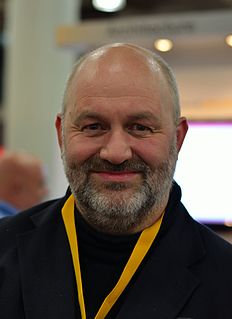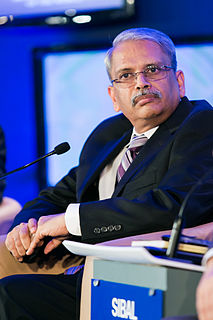A Quote by Werner Vogels
A service is said to be scalable if when we increase the resources in a system, it results in increased performance in a manner proportional to resources added.
Related Quotes
What is the manager's job? It is to direct the resources and the efforts of the business toward opportunities for economically significant results. This sounds trite - and it is. But every analysis of actual allocation of resources and efforts in business that I have ever seen or made showed clearly that the bulk of time, work, attention, and money first goes to problems rather than to opportunities, and, secondly, to areas where even extraordinarily successful performance will have minimal impact on results.
Hackman's paradox: Groups have natural advantages: they have more resources than individuals; greater diversity of resources; more flexibility in deploying the resources; many opportunities for collective learning; and, the potential for synergy. Yet studies show that their actual performance often is subpar relative to "nominal" groups (i.e. individuals given the same task but their results are pooled.) The two most common reasons: groups are assigned work that is better done by individuals or are structured in ways that cap their full potential.
When you think of all the conflicts we have - whether those conflicts are local, whether they are regional or global - these conflicts are often over the management, the distribution of resources. If these resources are very valuable, if these resources are scarce, if these resources are degraded, there is going to be competition.
































